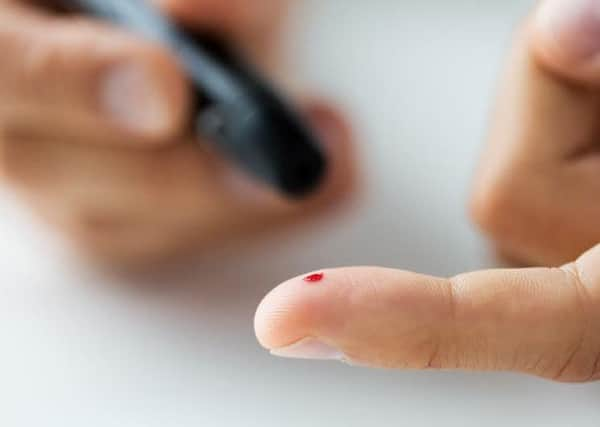COLUMN: Don't let diabetes damage your life


It’s National Diabetes Week from June 12 to 18, and we’d like to make everyone aware of the condition and how to make lifestyle changes to help prevent it.
Diabetes is a condition where the amount of glucose in your blood is too high because the body cannot use it properly.
Advertisement
Hide AdAdvertisement
Hide AdIt develops when glucose can’t enter the body’s cells to be used as fuel.
This happens when either: There is no insulin to unlock the cells – type 1 diabetes, or there is not enough insulin or the insulin is there but not working properly – type 2 diabetes.
Currently, more than 55,000 people in Derbyshire have type 2 diabetes, which is largely preventable through lifestyle changes, and 70,000 more are thought to be at high risk of developing it.
Diabetes can cause serious long-term health problems such as cardiovascular disease, vision loss and kidney failure.
Advertisement
Hide AdAdvertisement
Hide AdThe most common symptoms of diabetes include going to the toilet a lot, especially at night, being really thirsty, feeling more tired than usual, losing weight without trying to, genital itching or thrush, cuts and wounds take longer to heal and blurred vision.
If you have any of the above symptoms you should contact your GP.
It doesn’t necessarily mean you have diabetes, but it’s worth checking – early diagnosis and treatment are vital to reduce the chances of developing serious complications.
Patients at high risk of type 2 diabetes in Derbyshire will soon be able to benefit from a new programme to help them avoid developing the condition.
Advertisement
Hide AdAdvertisement
Hide AdThe new scheme is one of 27 to launch across the country as part of the national Healthier You: NHS Diabetes Prevention Programme, to help patients change their lifestyles.
GPs will invite people they know to be at high risk to enrol for tailored help, including education on healthy eating and lifestyle changes, and bespoke physical exercise programmes, all of which together have been proven to reduce the risk of developing the disease.
Some of the risk factors for type 2 diabetes – such as age, ethnic background, or family history – can’t be changed, but others can.
Eating more healthily and getting more exercise are some of the main things you can do to help reduce the risk of developing diabetes.
Advertisement
Hide AdAdvertisement
Hide AdPhysical activity can reduce your chance of developing type 2 diabetes by up to 40 per cent as well as reduce the risk of other health conditions.
To get more advice and help on managing diabetes visit www.diabetes.org.uk.